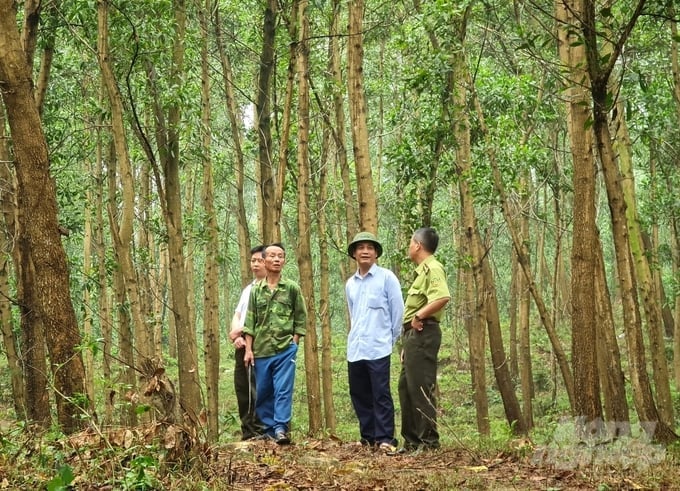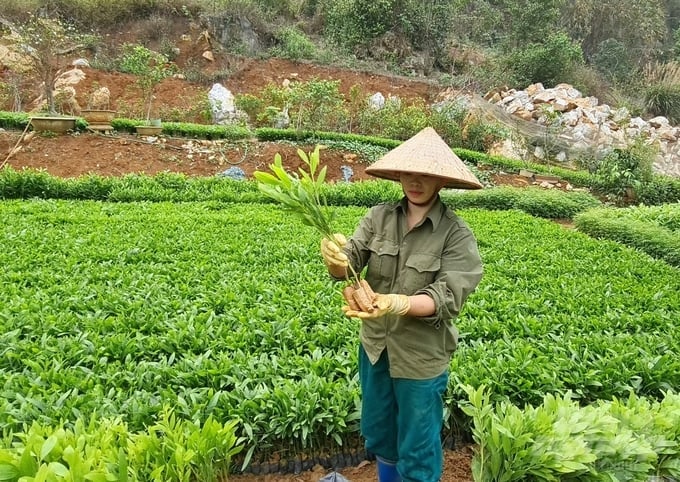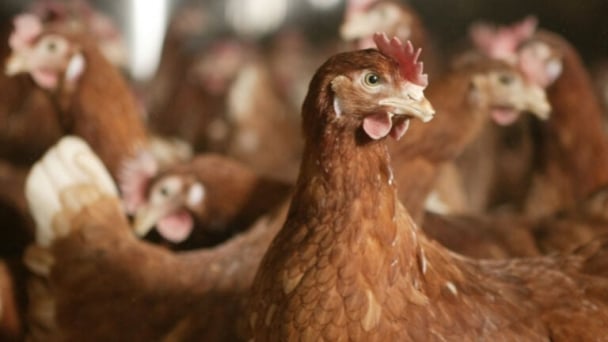June 27, 2025 | 13:35 GMT +7
June 27, 2025 | 13:35 GMT +7
Hotline: 0913.378.918
June 27, 2025 | 13:35 GMT +7
Hotline: 0913.378.918

Tuyen Quang Province currently houses over 48,700 hectares of forest area certified for sustainable forest management. Photo: Dao Thanh.
Tuyen Quang Province currently houses over 48,700 hectares of forest area certified for sustainable forest management under international (FSC) and national (VFCS/PEFC) standards. Among this area, over 16,400 hectares fall under the management of organizations, and 32,300 hectares under the management of household groups.
Outside of its benefits and positive impacts, FSC certification presents significant challenges. For example, family forest owners possess limited knowledge regarding sustainable forest management. Additionally, the low issuance rate for land use rights certification poses difficulties in the formation of groups to develop sustainable forest management plans.
According to regulations, stakeholders must harvest production forests in compliance with the approved plan within the sustainable forest management framework. However, in practice, the sale of forest products is heavily influenced by market conditions. Namely, farmers are reluctant to harvest when the price of planted forest timber drops. Conversely, higher timber prices may contradict the approved harvesting plan, which can result in uncoordinated forest harvesting.
Trieu Dang Khoa, Deputy Director of Tuyen Quang Province's Department of Forest Protection, commented that the process of preparing documentation for sustainable forest management certification requires a high degree of professional capacity. Accordingly, stakeholders must fully comply with the numerous and strict principles, criteria, and indicators. Consequently, the organization of assessments and the issuance of sustainable forest management certificates is a time-consuming and costly process.
Furthermore, the cost for evaluating, issuing, and maintaining sustainable forest management certification is significant (approximately 1 million VND per hectare). At present, the government only provides a one-time support of up to 300,000 VND per hectare for businesses, communities, household groups, and families. As a result, financial and technical support from the business community and local cooperatives is necessary for effective implementation.
With support from the Provincial People's Committee, Tien Huy Agricultural and Forestry Cooperative in Tien Bo Commune, Yen Son District, pioneered the planting of FSC-compliant forests in 2018. After more than five years of implementation, the cooperative and residents of Tien Bo Commune have gained valuable experience in planting techniques, soil protection, and forest management.
Ninh Van Lin, Team Leader of the FSC Team in Tien Bo Commune, noted that multiple FSC-certified large timber forests reached their harvesting age between 2020 and 2021. However, disruptions in the wood export market prevented timber-producing companies from harvesting timber and forced cooperatives to sell their products to small-scale processors at regular prices.

Many family forest owners, after purchasing forest seedlings, failed to keep documents that proves the origin of the seedlings. Photo: Dao Thanh.
The high cost associated with obtaining FSC certification for a forest, coupled with challenging market conditions, resulted in lower returns for forest owners compared to traditional forestry models. For the Tien Huy Agricultural and Forestry Cooperative, each FSC certification cycle results in a financial loss of approximately 600 million VND, despite receiving partial support from the government. Consequently, the cooperative refrained from reinvestment in the re-evaluation and re-certification of its existing FSC-certified forest areas.
Additionally, FSC-certified forest growers in Tuyen Quang Province face difficulties in complying with point b, clause 7, Article 5 under the Prime Minister's Decision No. 38/2016/QD-TTg, dated September 14, 2016. Accordingly, the Decision regulates that: “Forest planting materials including seeds, seedlings, or saplings must be sourced from certified seed production facilities in accordance with regulations.” This requirement presents a challenge because the majority of family forest owners fail to keep documents that proves the origin of the seedlings. after purchase.
Nineteen forest owners in Tuyen Quang Province currently fall under the category of organizations that are required to develop and implement sustainable forest management plans, according to Article 27 under the Law on Forestry. These forest owners include three special-use forest management boards, two protection forest management boards, and fourteen production forest managers. To date, thirteen forest owners have developed sustainable forest management plans that have received approval from competent authorities. In addition, all organizational forest owners in the province must complete the development and approval of their sustainable forest management plans by 2025.
The Forest Stewardship Council (FSC) is the sole global organization recognized for developing forest certification standards, established to maintain and ensure responsible forest management systems. FSC aims to minimize deforestation and uncontrolled logging, which can result in the reduction of overall forest area.
After over thirty years of operation, the organization has demonstrated its global influence in preventing illegal logging and severe forest destruction. To date, FSC forest certifications are present in over 50 countries and territories, with more than 850 members, including non-governmental organizations, scientific research centers, international certification bodies, community development centres, and businesses.
Translated by Nguyen Hai Long

(VAN) Research has shown that Hy-Line brown hens may be better suited for cage-free production based on overall greater egg production and other quality metrics.
![Turning wind and rain into action: [9] Digitizing hydrometeorological data in response to climate change](https://t.ex-cdn.com/nongnghiepmoitruong.vn/608w/files/news/2025/06/17/z6704423696987_15fd32ffc26d590d204d520c9dac6786-nongnghiep-165943.jpg)
(VAN) Farmers have begun accessing hydrometeorological applications to adjust their cropping schedules, aiming to ensure productivity and adapt to climate change.
![Turning wind and rain into action: [8] Real-time salinity detection and early warning technology](https://t.ex-cdn.com/nongnghiepmoitruong.vn/608w/files/news/2025/06/17/z6704423696987_15fd32ffc26d590d204d520c9dac6786-nongnghiep-151127.jpg)
(VAN) Thanks to the integration of modern hydrological-hydraulic models, remote sensing technologies, and artificial intelligence, the accuracy of hydrological forecasting has significantly improved.
![Turning wind and rain into action: [7] Early disaster warnings help marine farmers minimize losses](https://t.ex-cdn.com/nongnghiepmoitruong.vn/608w/files/news/2025/06/17/z6704423696987_15fd32ffc26d590d204d520c9dac6786-nongnghiep-142942.jpg)
(VAN) In recent years, thanks to early disaster warnings and forecasting, marine farmers in Khanh Hoa province have been able to reduce risks and losses, thereby improving production efficiency.
![Turning wind and rain into action: [6] ‘Four on-the-spot’ disaster management software](https://t.ex-cdn.com/nongnghiepmoitruong.vn/608w/files/news/2025/06/17/e5a48259d6a262fc3bb3-nongnghiep-183800.jpg)
(VAN) By simply activating the scenario on the disaster management software, the relevant authorities immediately know how many households need to be evacuated, where to evacuate them to, and by what means of transportation…
![Turning wind and rain into action: [5] Hue applies modern technology in disaster forecasting](https://t.ex-cdn.com/nongnghiepmoitruong.vn/608w/files/news/2025/06/17/z6704423696987_15fd32ffc26d590d204d520c9dac6786-nongnghiep-093938.jpg)
(VAN) In Hue city, modern technology has recently been applied in meteorological and hydrological forecasting and warning, helping to reduce the damage caused by natural disasters.

(VAN) A cutting-edge farming technique being implemented on an experimental ranch in Arizona's Sonoran Desert has already saved a billion gallons of water over five years, according to Civil Eats.